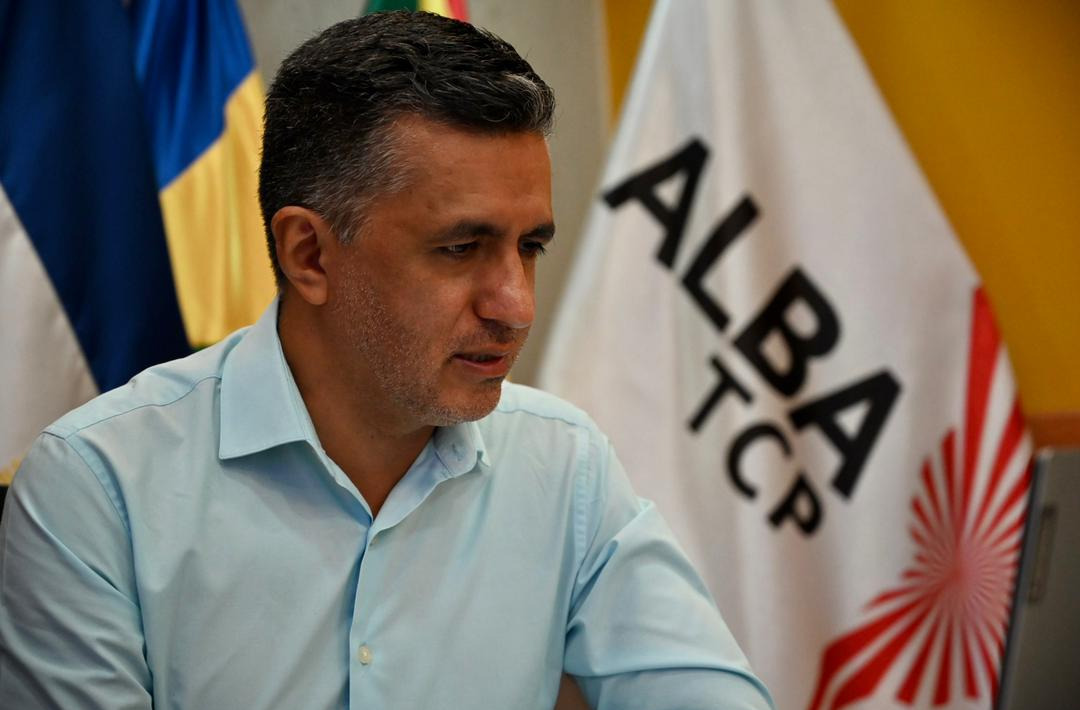
"The pandemic has contributed to a renewed awareness that it is essential to change the region's direction," said Llorenti. | Photo: Ministry of Foreign Affairs of Venezuela
Caracas, December 17 (RHC)-- The Bolivarian Alliance for the Peoples of Our America - Peoples' Trade Agreement (ALBA-TCP) is the heart of Latin American and Caribbean integration, which has been demonstrated in the midst of the COVID-19 pandemic, said its executive secretary, Sacha Llorenti.
During an exclusive interview for teleSUR, on the program "Es Noticia," the ALBA official stressed that it is necessary to "strengthen all those instances of integration that defend our sovereignty and our interests."
"The pandemic has contributed to rekindle the awareness that it is essential to change the direction of the region (...) ALBA-TCP is the heart of Latin American and Caribbean integration", Llorenti said.
The executive secretary of ALBA also recalled that this year has been one of victories for the region with the consolidation of democracy in Bolivia, after the defeat of an attempted coup d'état, as well as the electoral victories in Nicaragua, Venezuela, Saint Lucia and Honduras.
In addition to these events, we can add "the victory in Cuba against a destabilization attack by the United States," commented the Executive Secretary. He also noted that the Alliance criticizes the Organization of American States (OAS) because "it is not an instance of integration, it is the bishop of the desire to apply the Monroe Doctrine, interference."
Regarding the initiative of the Observatory against Interference promoted by ALBA-TCP, Llorenti stressed the importance of having a map of how foreign interference in the internal affairs of the countries of the region works, "because interference is not only public statements."
The executive secretary detailed that in the Democracy Summit convened by the United States (U.S.), its president Joe Biden "talked about investing 400 million dollars in what they call 'democracy', which means subverting the constitutional order in some countries, promoting division and providing economic funds to the opposition", among other actions.
"The Observatory against Interference wants to make a map on where that money goes, which are the non-governmental organizations that receive that money," he clarified.
Likewise, he emphasized that some non-governmental organizations (NGOs) "execute the foreign policy of other States in our countries."

